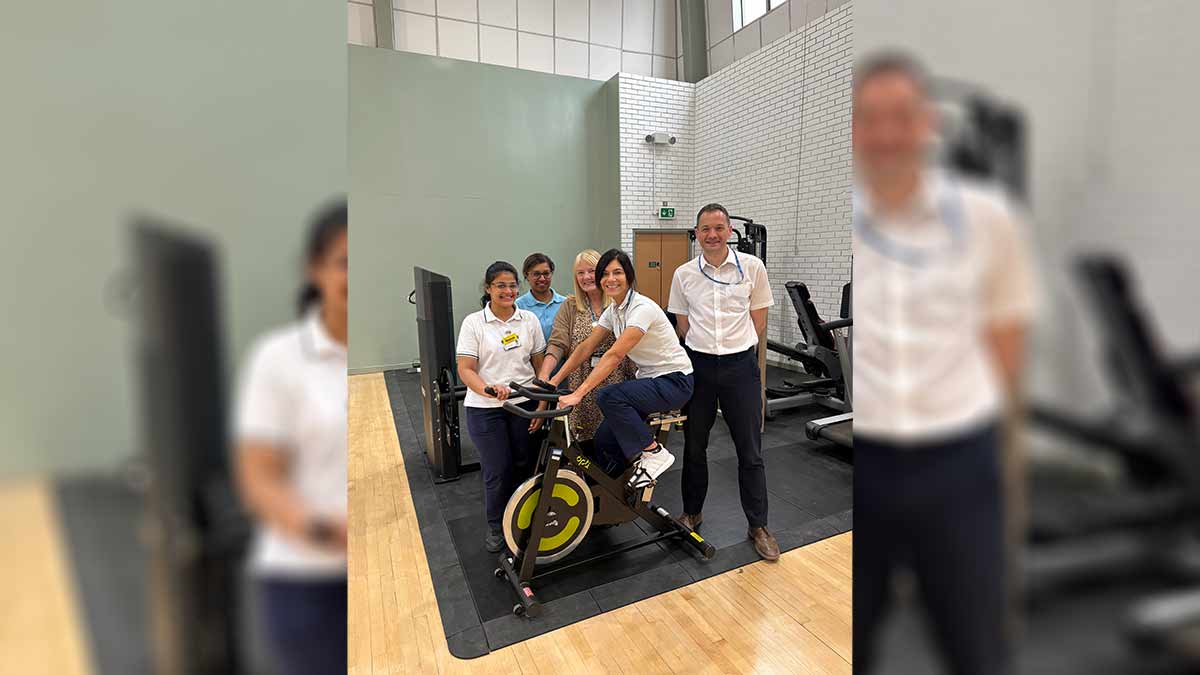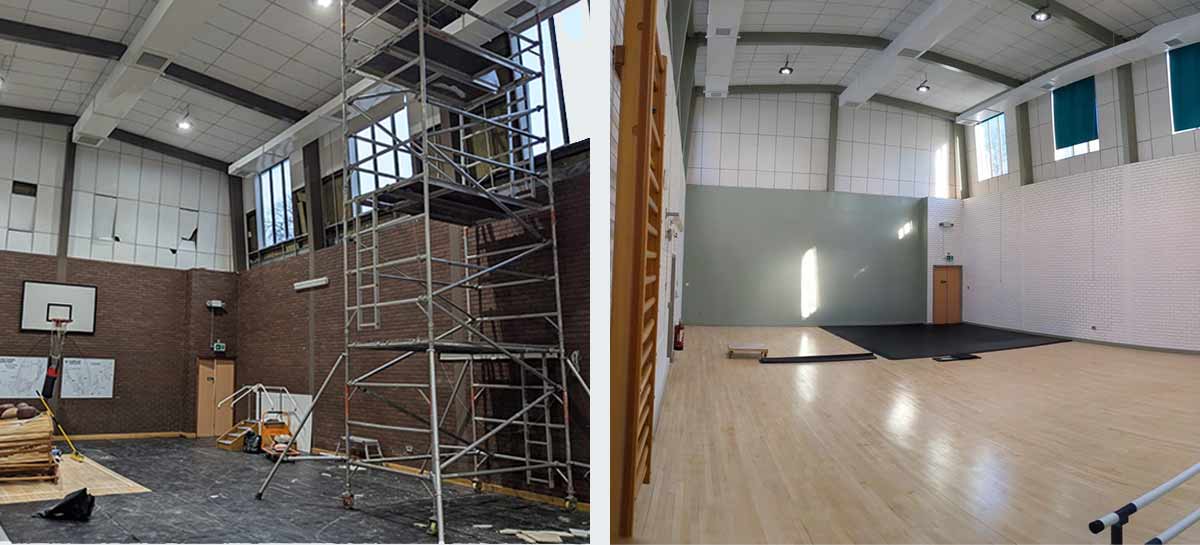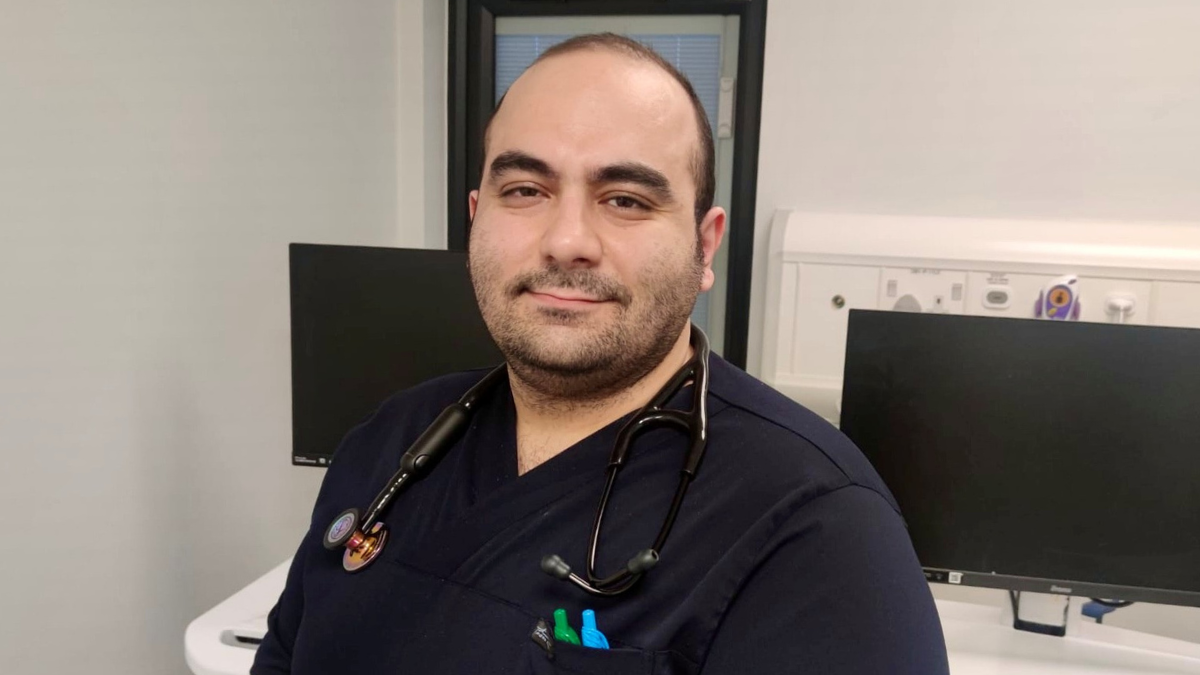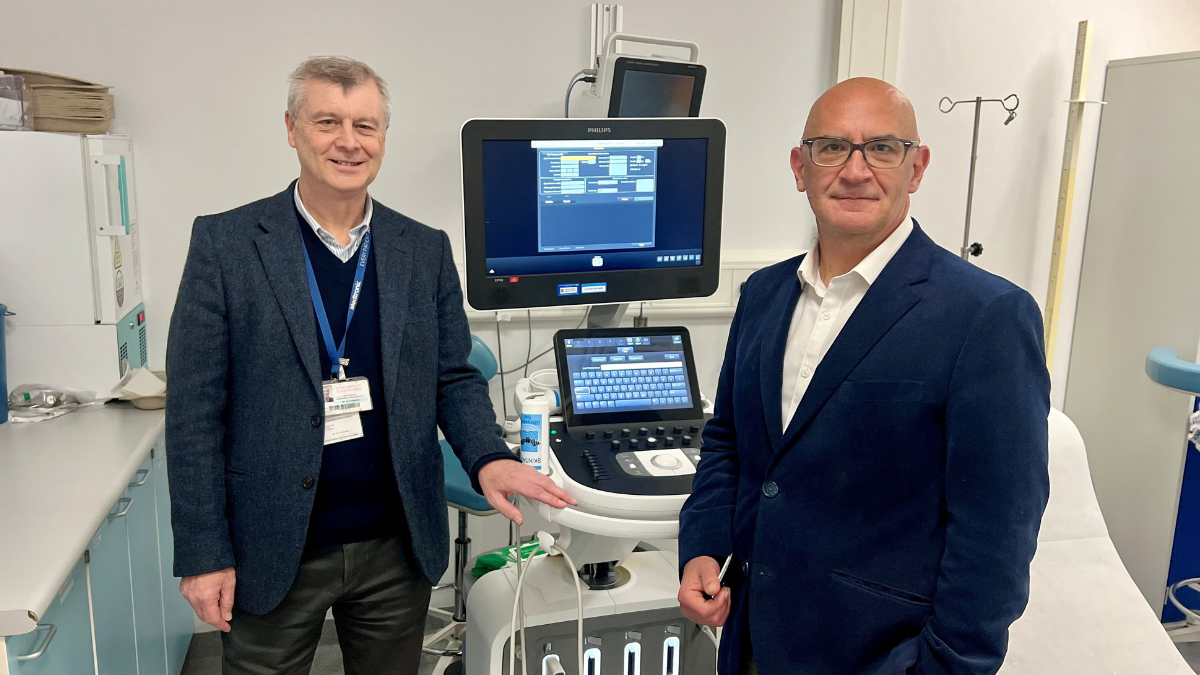Physiotherapy gym steps up a gear to enhance patient care
Published on 07/04/2025

Good Hope Hospital's physiotherapy outpatient gym has undergone an exciting and much-needed renovation.
For years, the gym, which serves as a critical area for teams providing essential services for musculoskeletal (MSK), respiratory, cardiac rehabilitation, and neurological conditions, has remained largely unchanged. Now, with increased demand for physiotherapy services, the refurbishments promise to create a more effective, safer, and welcoming environment for both staff and patients.
The gym plays a vital role in the delivery of a variety of rehabilitation programmes, including classes for patients recovering from knee and shoulder injuries, hip replacements, and conditions such as osteoarthritis. However, the space had become dated, with worn flooring, old equipment, and a lack of modern features that hindered its full potential.
To address these concerns, the renovation includes a complete overhaul of the gym’s features. The floor has been sanded and re-varnished, with a non-slip matting area for weight and gym equipment. The renovation also sees the removal of outdated monkey bars and basketball hoops, a fresh coat of paint on the old brickwork, and the installation of new ceiling tiles, LED lighting, and high-level blinds. Additionally, new storage solutions are being introduced, ensuring that the space is optimally used for rehabilitation activities.
The renovation is expected to have a positive impact on both staff morale and patient outcomes. For staff working in the physiotherapy department, the new space is an indication of the hospital leadership team’s commitment to providing a working environment that supports their efforts.

Alison Jackson, Therapy Lead for Musculoskeletal and Orthotics at Good Hope and Solihull hospitals, said: "It's brilliant to see a space that looks fresh and professional. It reflects the quality of physiotherapy care we deliver and motivates both staff and patients. We are extremely proud to deliver on the pledge we made to our staff in creating a gym fit for purpose and one that will improve health outcomes for our patients.”
Luke Wilkins, Clinical Team Lead at Good Hope Hospital, added: “For patients, a modern, well-equipped gym will offer an environment that fosters rehabilitation success. With an aging population and increased healthcare pressures, the demand for physiotherapy services is growing.”
In Birmingham, where public health data indicates that 65.2% of adults are clinically overweight or obese, access to high-quality rehabilitation services is more critical than ever. The renovation of the gym aims to support the hospital’s commitment to improving health outcomes and promoting healthier lifestyles through exercise.
The new gym will be more conducive to group classes, which include functional strength training, back pain management, and post-operative care for joint replacements. The improved space will also cater to a variety of patient needs, from general physical strengthening to specific rehabilitation pathways such as the arthroplasty class for patients recovering from hip and knee replacements.
It will play a crucial role in managing conditions such as musculoskeletal issues, metabolic disorders, and neurological conditions, which are becoming increasingly prevalent in older adults. It will also provide more space and better equipment to cater to the rising number of referrals and increase the capacity to see more patients. This investment in a new gym space aligns with Good Hope Hospital’s ambition of providing top-tier clinical care through research, excellent staff training, and innovation in a safe, supportive environment.


